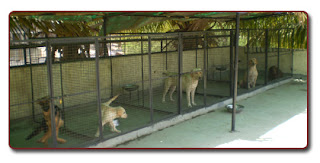Cages work for a range of factors, however the top, in my book, is to housetrain a puppy or dog. Dogs have an inherent impulse to keep their den clean, meanings that you can make the most of that reality and assist him find out that he has to remove outdoors.
Providing your dog an unique toy or deal with that he ONLY gets when he's in his crate is a truly excellent concept (Kongs are terrific for this). NEVER force a dog or puppy into a crate. As your dog ends up being more and more comfy with his crate, you can slowly enhance the quantity of time invested in the crate.
Search for a crate that is huge enough to enable your dog the space to stand and reverse and stretch, however not too big. You do not desire your puppy to make use of one side to rest and the other to get rid of in. If you do wish to buy a bigger crate so that you do not need to buy another as the dog grows older, there are designs that likewise consist of a divider so that the crate can be broadened as the dog grows.
When you launch your dog from its crate ... right away take him outside to get rid of. Do not simply let the dog or puppy outside in the yard, ensure he is monitored. The factor for this is two-fold:
- When he does ... appreciation! Assist him to comprehend that this is the very best thing EVER.
- You can take him to one area in the backyard so that ends up being the potty area.
If he is grumbling, another crucial thing to keep in mind is to not launch your dog from his crate. Your dog will rapidly find out that grumbling equates to being launched from his crate and, think exactly what, he simply trained you! When he is in a calm state of mind and do not make a huge production about him coming out of the crate, just launch your dog.
For pups or dogs that are not housebroken, you will certainly have to continuously monitor them when inside your house (there must be borders figured out in the house). By keeping them on a constant feeding and crate training schedule, you must rapidly have a housebroken dog.
Or if you didn't utilize a crate to begin with and now your dog gets rid of in the residence? Or if you have an older dog who was never ever crate trained? You will certainly require to be constant in your schedule and, in the case of any poor associations with cages, do some counter-conditioning to get the dog over any worries that it may have with the crate.
